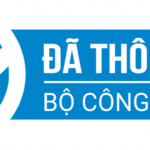- From Accras Hub to Rural Villages: The Latest news in ghana Shaping Futures and Livelihoods.
- Economic Developments and Investment Climate
- Political Landscape and Governance
- Electoral Processes and Reforms
- Local Governance and Decentralization
- Social Progress and Development Challenges
- Technological Advancements and Digital Inclusion
- Cultural Expression and National Identity
From Accras Hub to Rural Villages: The Latest news in ghana Shaping Futures and Livelihoods.
Ghana, a nation brimming with vibrant culture and a rapidly evolving socio-political landscape, consistently generates compelling narratives that extend far beyond its borders. The flow of news in ghana is increasingly significant, not only for its citizens but also for investors, researchers, and the diaspora community worldwide. Access to reliable and timely information is crucial for understanding the dynamics of this West African hub, and its impact on regional and global affairs. This article delves into the core areas shaping Ghana’s present and future, providing an in-depth look at the key developments impacting lives and livelihoods across the country.
From economic shifts and political transitions to social progress and cultural expressions, Ghana presents a complex and multifaceted picture. The increasing accessibility of digital platforms has revolutionized the dissemination of information, fostering greater transparency and public engagement. However, this digital age also presents challenges, including the proliferation of misinformation and the need for robust fact-checking mechanisms to ensure the public receives accurate and trustworthy updates.
Economic Developments and Investment Climate
Ghana’s economy has experienced periods of robust growth, driven primarily by cocoa production, gold mining, and recently, the oil and gas sector. However, fluctuating commodity prices and external economic factors can significantly impact stability. Recent economic reports indicate a focus on diversification, with government initiatives aimed at boosting the manufacturing sector and attracting foreign direct investment. These initiatives seek to create more jobs and reduce the nation’s reliance on raw material exports.
The government’s commitment to infrastructure development, including improvements to transportation networks and energy infrastructure, is anticipated to further stimulate economic growth. These projects, however, require substantial investment, and careful financial management is paramount to avoid accumulating excessive debt. Public-private partnerships are increasingly being explored to leverage private sector expertise and capital, accelerating project delivery and ensuring long-term sustainability.
| Agriculture | 20.3% | 3.8% |
| Industry | 33.8% | 8.2% |
| Services | 45.9% | 6.4% |
Political Landscape and Governance
Ghana is widely regarded as a beacon of democracy in West Africa, with a history of peaceful transitions of power. The political landscape is dominated by two main parties, though smaller parties also play a role in influencing policy debates. Ongoing efforts focus on strengthening democratic institutions, improving governance, and combating corruption. Transparency and accountability are critical to maintain public trust and foster effective governance.
Recent political discussions have centered on electoral reforms, constitutional amendments, and strategies to address social inequalities. Increasing citizen participation in the political process is recognized as essential for ensuring that government policies reflect the needs and aspirations of the population. The principles of rule of law and due process are consistently emphasized, safeguarding fundamental rights and freedoms.
Electoral Processes and Reforms
Ghana’s electoral commission plays a pivotal role in overseeing and conducting free and fair elections. Recent elections have benefitted from increased use of technology, such as biometric voter registration and electronic transmission of results, aimed at enhancing transparency and efficiency. Ongoing discussions consider further reforms to address challenges related to voter access, ballot security, and post-election dispute resolution. Strengthening the electoral process is vital to sustaining Ghana’s democratic credentials and promoting political stability, continuing to fuel the consistent flow of news in ghana. Ensuring that every eligible citizen has the opportunity to participate in the electoral process is paramount to maintaining a vibrant democracy.
Local Governance and Decentralization
Efforts to decentralize governance and empower local assemblies are gaining momentum. By devolving decision-making authority to local levels, the government aims to increase responsiveness to local needs and promote community-led development. Local assemblies are tasked with developing and implementing development plans, managing local resources, and delivering essential services. Capacity building programs are crucial to equipping local officials with the skills and resources necessary to effectively fulfill their responsibilities. This shift towards decentralization embodies a commitment to inclusive governance and equitable development across the country.
Social Progress and Development Challenges
Significant strides have been made in improving social indicators such as access to education and healthcare. However, challenges remain, including disparities in income, access to quality education, and healthcare services between urban and rural areas. Addressing these inequalities is crucial for fostering inclusive growth and reducing poverty levels across the nation. Government programs aimed at promoting social welfare, income support, and access to essential services are vital to improving the well-being of vulnerable populations.
Investing in human capital development, particularly in education and skills training, is critical for equipping the workforce with the skills needed to compete in the global economy. Strengthening the healthcare system, improving access to affordable healthcare services, and addressing public health challenges are also paramount to building a healthy and productive population. Sustainable development initiatives that protect the environment and promote responsible resource management are equally essential for ensuring long-term prosperity.
- Access to education remains a key priority.
- Healthcare infrastructure is undergoing significant improvements.
- Efforts to reduce poverty are ongoing.
- Sustainable development is gaining traction.
Technological Advancements and Digital Inclusion
Ghana is experiencing a rapid digital transformation, with increasing access to mobile phones, internet connectivity, and digital technologies. This digital revolution is creating new opportunities for economic growth, social inclusion, and improved access to information. The growth of the fintech sector is transforming the financial landscape, providing innovative financial services to a wider range of customers, offering another aspect of interesting news in ghana. However, bridging the digital divide and ensuring equitable access to digital technologies remains a significant challenge.
Government initiatives focused on promoting digital literacy, expanding broadband infrastructure, and encouraging the adoption of digital technologies are essential to accelerating digital inclusion. Investing in cybersecurity measures to protect digital infrastructure and personal data is also crucial. The potential of digital technologies to transform various sectors of the economy, including agriculture, healthcare, and education, is immense, but realizing this potential requires concerted effort and strategic investments.
- Increase access to affordable internet connectivity.
- Promote digital literacy among citizens.
- Invest in cybersecurity infrastructure.
- Encourage the development of local digital content.
Cultural Expression and National Identity
Ghana boasts a rich cultural heritage, characterized by diverse ethnic groups, vibrant traditions, and artistic expressions. The preservation and promotion of cultural heritage play a vital role in fostering national identity, promoting tourism, and creating opportunities for economic development. Support for the arts, music, literature, and traditional crafts is essential for showcasing Ghana’s cultural richness to the world.
The annual celebrations of traditional festivals provide platforms for communities to showcase their cultural heritage and strengthen social bonds. Promoting cultural exchange programs between Ghana and other countries can foster greater understanding and appreciation of different cultures. Investing in cultural infrastructure, such as museums, art galleries, and cultural centers, is vital for preserving cultural heritage and providing spaces for artistic expression.
Ghana continues to navigate a path of progress, facing challenges and embracing opportunities with resilience and determination. The consistent flow of information – the news in ghana – empowers citizens, attracts investment, and fuels the nation’s journey towards a brighter future, solidifying its position as a dynamic force in West Africa and on the global stage.



